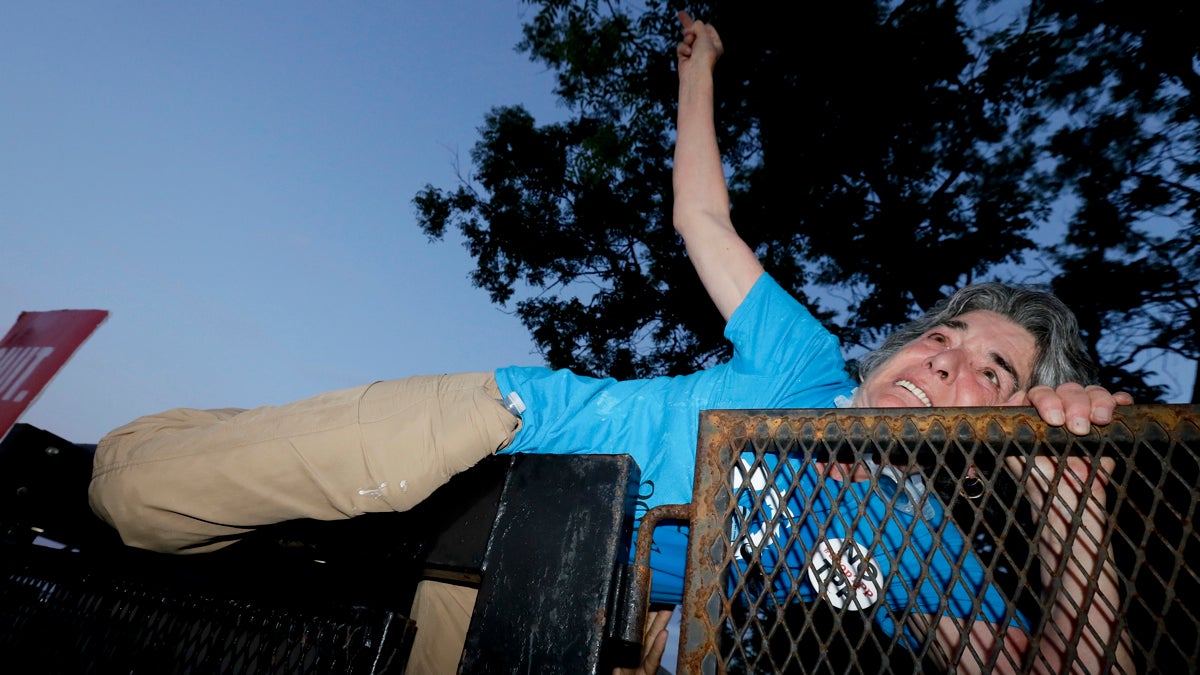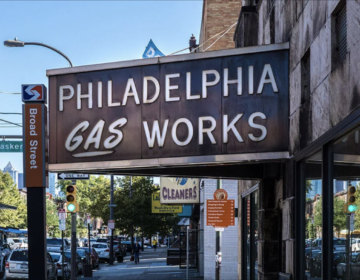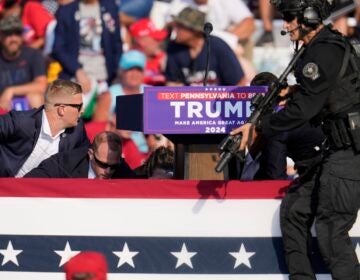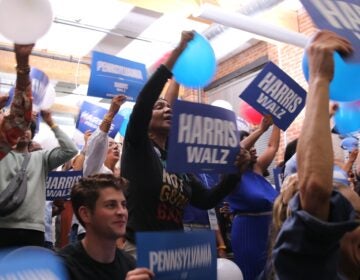Federal charges a new anti-protest tactic, or is the Secret Service entrenching its authority?

A protester climbs over the fence near the AT&T Station in Philadelphia
The City of Philadelphia is getting a lot of mileage out of the claim it made no arrests during the Democratic National Convention last week, despite the fact that police handcuffed roughly 100 protesters over multiple days and took them off site to process and fine them.
Even though protesters were given civil citations and not criminally charged, nor taken to the Roundhouse or city jail, by any other classification the detentions would qualify as arrests.
“The dozens of people cited will still have to deal with the legal system and pay a fine for the ‘privilege’ of being arrested,” said Amanda Spitfire of Up Against the Law, a legal collective supporting people who were arrested during the DNC.
“If anyone wants to fight their civil citation, they’ll have to retain an attorney to do so,” continued Spitfire. “It’s clear the city changed its policy for the DNC specifically to orchestrate a PR stunt and shirk responsibility for arresting protesters.”
Fortunately for DNC protesters, UATL has committed to fighting the citations on behalf of anyone who’s interested.
However, activists and their supporters are far more concerned about another 11 protesters arrested on federal charges and their potential implications.
Selective arrests, an affront to the First Amendment
Even though most of the arrested protesters were cited with charges like disorderly conduct for allegedly jumping the perimeter fence or for being inside a “restricted area,” 11 were selectively given federal charges for what seems to be similar behavior.
After more than 50 protesters were arrested last week Monday for jumping a barricade at one of the entrances to the Wells Fargo Center where the DNC was held, four more protesters were arrested Tuesday night and initially cited by the city in the same manner.
But, soon after they received civil citations, without warning, the four protesters were put in a paddy wagon, taken to the Federal Detention Center, and charged with “entering restricted grounds,” under 18 US Code Section 1752(a)(1). On Wednesday night, another seven people were arrested and given the same federal charges for what the Secret Service is saying was a breach to the security perimeter.
Attorneys for the protesters are not only balking at the selective nature of the arrests, they are also more broadly condemning the arbitrary use of security perimeters to chill First Amendment activity.
“Why are we allowing the federal government to play the ‘national security’ card and arbitrarily impose a security perimeter wherever it wants?” asked Larry Krasner, one of the attorneys working with UATL. “Not only is the government given carte blanche to erect a ‘stay-away’ zone without consideration of the First Amendment, it can also change the perimeter at will as the Secret Service did during the DNC.”
Federal security perimeters
The federal statute used to charge the 11 DNC protesters was originally adopted in 1971, ostensibly as a means for the Secret Service to protect dignitaries like the president and vice president. But after the creation of the National Special Security Event designation in 1998, the number of events the federal government deems worthy of Secret Service protection has increased dramatically.
Shortly after the Occupy Wall Street movement was dismantled with what has now been shown to be a collaborative effort between the Federal Bureau of Investigation and local police departments across the country, President Obama signed into law HR 347. A seemingly inconsequential bill, HR 347 amended Section 1752 to reinforce the government’s use of security perimeters.
With the original law, prosecutors had to show that someone “willfully and knowingly” entered a restricted area. Now they only have to prove that someone “knowingly” crossed a line drawn by the Secret Service.
The question of whether protesters knew the area was restricted will likely come up in at least some of the federal DNC protest cases, but the selective nature of the arrests and the question of whether the protesters were resisting an arbitrarily defined security perimeter may be more relevant to the defense.
Arguably, the security zones established for the Republican convention in Cleveland and for the DNC in Philadelphia both failed to allow protesters their right to be within “sight and sound” of the events. Philadelphia’s security perimeter was several city blocks from the Wells Fargo Center.
Cleveland’s perimeter was closer, but still prevented protesters from being heard. The Ohio ACLU sued the city and successfully curtailed the area within which certain items like tennis balls and toy guns were banned. The “stay-away zone” around the Quicken Loans Arena established by the Secret Service remained unchanged.
It’s unclear whether the U.S. Attorney’s Office in Philadelphia will back down from prosecuting the DNC protesters or what the defense will be if the cases go forward. But, the actions of the Secret Service at the DNC seem to indicate a shoring up of federal control over who can protest where and when.
All of the 11 federal arrestees were released on their own recognizance and are awaiting their next court appearances which are not yet scheduled.
“The U.S. Attorney’s Office and the City of Philadelphia need to recognize that their actions have created a heinous impediment to free speech,” said Marni Snyder, one of the attorneys representing protesters arrested last week. “Free speech cannot be based on a person’s ability to pay a fine or submit to supervision by the government,” continued Snyder. “The city and federal government should do the right thing and drop all charges against the DNC protesters so no further affront to the First Amendment is committed.”
—
Kris Hermes is an activist, legal worker, and author of “Crashing the Party: Legacies and Lessons from the RNC 2000.”
WHYY is your source for fact-based, in-depth journalism and information. As a nonprofit organization, we rely on financial support from readers like you. Please give today.




